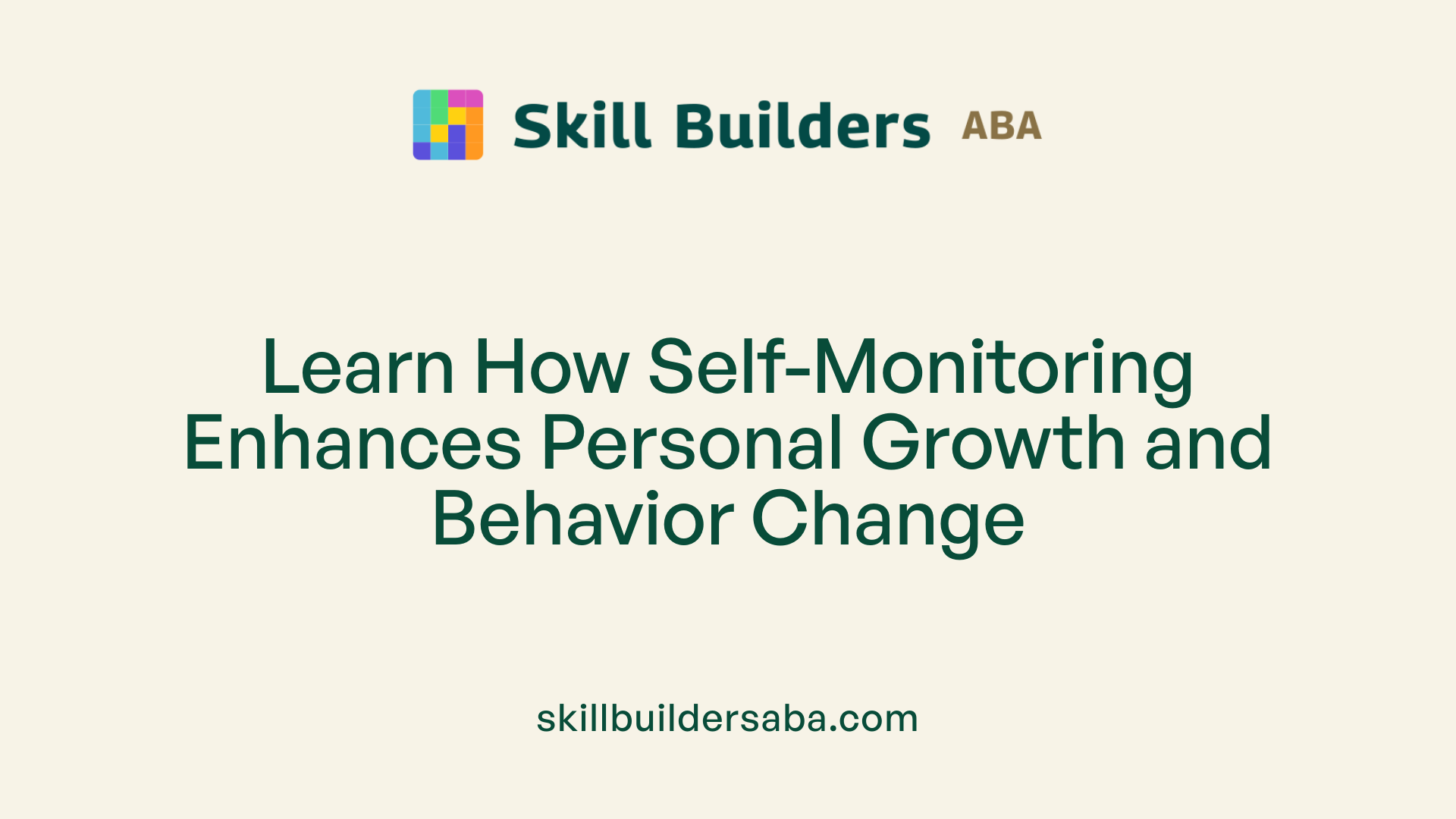
Using self-monitoring tools to increase independence
Empowering Autonomy Through Self-Monitoring Techniques
Unlocking Independence with Self-Monitoring Strategies
Self-monitoring is a fundamental self-regulation tool that enables individuals across various populations to manage their behaviors, improve performance, and foster independence. By teaching individuals to observe, record, and evaluate their actions, self-monitoring encourages active participation in personal development and enhances executive functioning. This article explores the principles, strategies, benefits, and practical applications of self-monitoring tools, demonstrating how they serve as powerful conduits to greater autonomy.
Principles and Concepts of Self-Monitoring

What are the principles and concepts of self-monitoring, and how do they contribute to independence?
Self-monitoring involves actively observing and recording one's own behaviors, thoughts, or emotions. The goal is to increase self-awareness and self-regulation, which are critical for developing independence. The process starts with clearly identifying specific target behaviors that align with personal or educational goals. Individuals then select suitable methods for recording these behaviors, such as checklists, journals, digital apps, or timers. Effective self-monitoring incorporates prompts or cues—like visual reminders or auditory signals—to remind the individual to observe or record their actions. Reinforcement strategies, including positive feedback and rewards, motivate continued engagement. By fostering a habit of self-assessment, self-monitoring helps users recognize patterns and make adjustments in real-time. This reflection process encourages responsibility, enabling individuals to manage their behaviors proactively. The core concepts of measurement—tracking behaviors over time—and evaluation—comparing behaviors against personal standards—are central to this process. These elements work together to promote behavior change, develop executive functioning skills, and ultimately support greater independence. In essence, self-monitoring empowers individuals to take control of their actions, resulting in enhanced self-management skills applicable in diverse settings—from classrooms to workplaces—thus fostering lifelong independence.
Fostering Autonomy for Lasting Success
In conclusion, self-monitoring serves as a powerful, evidence-based approach to cultivating independence across age groups and ability levels. Through principles rooted in self-awareness, measurement, and evaluation, individuals learn to manage their behaviors proactively. Implementing effective strategies—such as visual supports, technology tools, and personalized reinforcement—ensures sustainability and engagement. The benefits of self-monitoring, including improved self-regulation, goal achievement, and reduced reliance on external prompts, extend into educational, behavioral, and developmental domains. As research consistently demonstrates, fostering skills like self-awareness, self-efficacy, and self-management equips individuals to navigate their environments more independently, promoting lifelong autonomy. By integrating evidence-based practices with technological innovations, caregivers, educators, and practitioners can unlock the full potential of self-monitoring systems to support personal growth and independence.
References
- Teaching Students Self-Monitoring Behavior Skills - TeachHUB
- 8 Self-Monitoring Strategies For Improving Concentration & Focus
- Self-Monitoring Intervention for Adolescents and Adults with Autism
- The Power of Self-Monitoring: How to Help Kids Build Focus and ...
- Self-Monitoring Strategies for Kids - The OT Toolbox
- Teach Students to Change Behaviors Through Self-Monitoring
- [PDF] Self-Monitoring Systems to Improve Behavior Outcomes for Students ...
- Effective Self-Management Skills in ABA - Neuromnia
Navigating Therapy Together
See how Skill Builders ABA makes a difference in the lives of the families we serve. If you are ready for the next step, contact our team to start the enrollment conversation.
.svg)